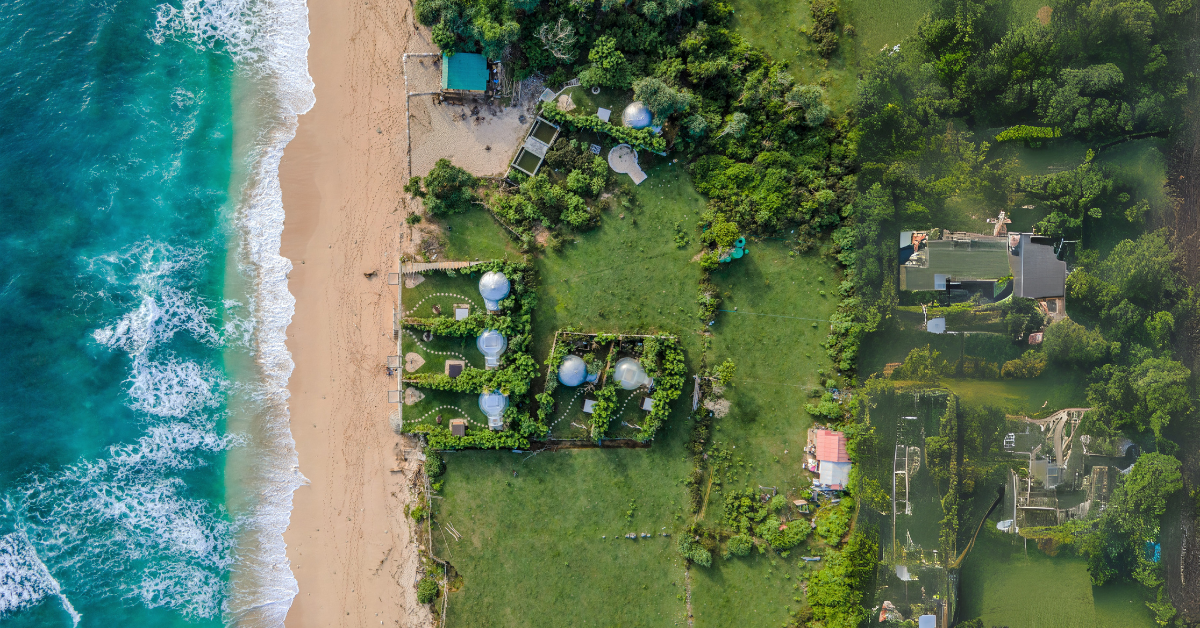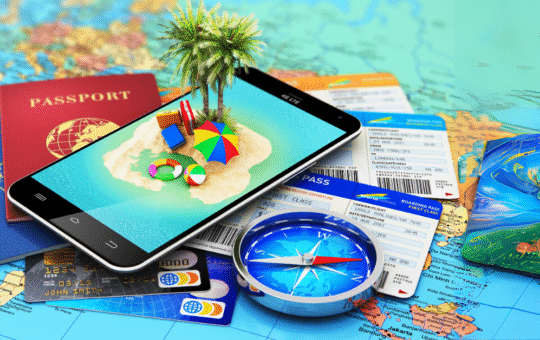
Level 4 Diploma in Sustainable Tourism Development
- Learn the core principles and best practices of sustainable tourism.
- Understand the environmental, social, and economic impacts of tourism on local communities and ecosystems.
- Develop skills in managing tourism projects that support sustainability and eco-friendly practices.
- Gain expertise in promoting responsible tourism to benefit both the industry and local populations.
- Improve career prospects in tourism management, eco-tourism, and sustainable development sectors.
- Understand the key principles of sustainable tourism and its significance for the global tourism industry.
- Explore the environmental, social, and economic impacts of tourism and how to mitigate negative effects.
- Learn to develop and manage sustainable tourism strategies that balance growth with environmental protection.
- Gain knowledge of eco-tourism practices and their role in preserving natural resources and supporting local communities.
- Develop skills in assessing sustainability in tourism destinations and creating strategies for improvement.
- Understand how to engage with local communities and stakeholders to create tourism projects that benefit all parties involved.
- Introduction to Sustainable Tourism
- Definition and principles of sustainable tourism.
- The importance of sustainability in the tourism industry.
- Environmental Impacts of Tourism
- The effects of tourism on ecosystems, wildlife, and natural resources.
- Strategies for minimizing tourism's environmental footprint.
- Social and Cultural Impacts of Tourism
- Understanding how tourism affects local cultures, communities, and lifestyles.
- Managing cultural sensitivity and preserving local heritage.
- Economic Sustainability in Tourism
- How tourism can contribute to local economies in a sustainable way.
- Economic strategies for promoting long-term financial viability in tourism.
- Eco-Tourism and Green Tourism
- Principles and practices of eco-tourism, including nature-based tourism and wildlife conservation.
- How to market and develop eco-friendly tourism experiences.
- Tourism Management and Planning
- Sustainable tourism planning at the destination level.
- Engaging stakeholders, government agencies, and local communities in sustainable tourism development.
- Pursue roles in sustainable tourism management, eco-tourism, and tourism development organizations.
- Work as sustainability consultants for tourism companies or destinations.
- Lead initiatives focused on responsible travel, environmental protection, and community engagement.
- Progress to higher qualifications in tourism or environmental management.
- Expert Trainers: Learn from industry professionals with hands-on experience in sustainable tourism.
- Real-World Relevance: The curriculum covers current trends and practical applications in sustainable tourism.
- Practical Insights: Focus on real-world case studies and sustainable tourism solutions.
- Globally Recognized Certification: Enhance your credentials with a qualification recognized by the international tourism and sustainability sectors.
Study Units
- Introduction to Sustainable Tourism
- Definition and principles of sustainable tourism.
- The importance of sustainability in the tourism industry.
- Environmental Impacts of Tourism
- The effects of tourism on ecosystems, wildlife, and natural resources.
- Strategies for minimizing tourism’s environmental footprint.
- Social and Cultural Impacts of Tourism
- Understanding how tourism affects local cultures, communities, and lifestyles.
- Managing cultural sensitivity and preserving local heritage.
- Economic Sustainability in Tourism
- How tourism can contribute to local economies in a sustainable way.
- Economic strategies for promoting long-term financial viability in tourism.
- Eco-Tourism and Green Tourism
- Principles and practices of eco-tourism, including nature-based tourism and wildlife conservation.
- How to market and develop eco-friendly tourism experiences.
- Tourism Management and Planning
- Sustainable tourism planning at the destination level.
- Engaging stakeholders, government agencies, and local communities in sustainable tourism development.
By completing this course, learners will:
- Understand the key principles of sustainable tourism and its significance for the global tourism industry.
- Explore the environmental, social, and economic impacts of tourism and how to mitigate negative effects.
- Learn to develop and manage sustainable tourism strategies that balance growth with environmental protection.
- Gain knowledge of eco-tourism practices and their role in preserving natural resources and supporting local communities.
- Develop skills in assessing sustainability in tourism destinations and creating strategies for improvement.
- Understand how to engage with local communities and stakeholders to create tourism projects that benefit all parties involved.
The Level 4 Diploma in Sustainable Tourism Development is intended for individuals who are passionate about promoting responsible and eco-friendly tourism practices. This course is ideal for:
Aspiring Sustainable Tourism Professionals
Individuals seeking to enter the tourism industry with a focus on sustainability, eco-tourism, and responsible travel initiatives.Tourism Industry Employees
Staff members already working in tourism, travel agencies, hotels, or tour operations who want to integrate sustainable practices into their services.Community Development Workers
Professionals involved in community-based tourism, local development projects, or cultural preservation initiatives looking to enhance their impact.Environmentalists and Conservationists
Individuals passionate about protecting natural and cultural resources who wish to apply their knowledge within the tourism sector.Entrepreneurs and Business Owners
Those planning to start eco-tourism businesses, sustainable travel agencies, or environmentally responsible hospitality ventures.Graduates and Career Changers
Recent graduates or professionals from other industries who want to transition into the growing field of sustainable tourism.
Our assessment process is designed to ensure every learner achieves the required level of knowledge, skills, and understanding outlined in each course unit.
Purpose of Assessment
Assessment helps measure how well a learner has met the learning outcomes. It ensures consistency, quality, and fairness across all learners.
What Learners Need to Do
Learners must provide clear evidence that shows they have met all the learning outcomes and assessment criteria for each unit. This evidence can take different forms depending on the course and type of learning.
Types of Acceptable Evidence
Assignments, reports, or projects
Worksheets or written tasks
Portfolios of practical work
Answers to oral or written questions
Test or exam papers
Understanding the Structure
Learning outcomes explain what learners should know, understand, or be able to do.
Assessment criteria set the standard learners must meet to achieve each learning outcome.
Assessment Guidelines
All assessment must be authentic, current, and relevant to the unit.
Evidence must match each assessment criterion clearly.
Plagiarism or copied work is not accepted.
All learners must complete assessments within the given timelines.
Where applicable, assessments may be reviewed or verified by internal or external quality assurers.
Full learning outcomes and assessment criteria for each qualification are available from page 8 of the course handbook.
Top Courses
No results found.
Related Courses
Let's Get in touch
Deleting Course Review
Course Access
This course is password protected. To access it please enter your password below:



